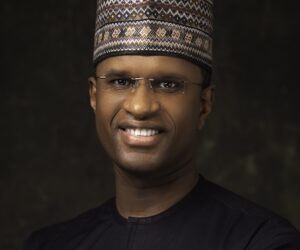In the Name of Allah, the Entirely Merciful, the Especially Merciful
Praise is due to Allah, Lord of the worlds, may the blessings and peace be upon our beloved master Muḥammad, the last of Prophets, on his family, and all his companions.
Dear brothers and sisters! Allah the Most High says:
“And if your Lord had willed, He could have made mankind one community (one Ummah); but they will not cease to differ. Except whom your Lord has given mercy, and for that He created them. But the word of your Lord is to be fulfilled that, “I will surely fill Hell with jinn and men all together.” [Qur’an, 11:118-119]
Respected servants of Allah! This Qur’anic verse suggests that differences and disagreements are a natural part of humanity’s existence, but it’s important to distinguish between those who follow divine guidance and those who don’t, as the latter will continue to differ in their beliefs and actions.
This Qur’anic verse explains that Allah could have made all people the same, but He chose not to. This implies that diversity in beliefs, opinions, and actions is a part of His design for humanity.
However, there is an exception to this general disagreement. Those on whom Allah has bestowed His mercy, by following His Messengers and adhering to His commands, are not included in this perpetual differing.
The individuals who receive Allah’s mercy and follow His guidance are the “Saved Sect (Firqatun-Najiyah).” They are characterised by their adherence to the true faith and are promised happiness in this life and the Hereafter.
In essence, this Qur’anic verse teaches that:
● Disagreement is a persistent reality among people in their creeds and opinions.
● This is not Allah’s error but a part of His wisdom for humanity.
● Those who follow Allah’s path are distinguished from those who stray and remain in disagreement.
Dear brothers and sisters! The celebration of Prophet Muhammad’s birthday, or Mawlid, is a yearly festival observed on the 12th of Rabi’ul-Awwal in the Islamic calendar, though opinions in Islam are divided: some Muslims celebrate it as a sign of love and remembrance, while others consider it a forbidden innovation (Bid’ah) not practiced by the Prophet or his companions. The Celebrations often involve religious gatherings, communal meals, and acts of charity, while those who view it as an innovation (Bid’ah) emphasise following the Prophet’s Sunnah and adhering to the Qur’an.
The Mawlid is the celebration of the birthday of the Prophet Muhammad (Peace be upon him), observed on the 12th of Rabi’ul-Awwal, the third month of the Islamic Hijrah calendar.
This tradition dates back to the 4th century AH and was popularised in the 13th century by the Fatimid Shi’as in Egypt.
Those who are in support of it (Proponents) see it as a way to show love, to revive the remembrance of the Prophet, and foster community through religious gatherings, feasting, and charitable acts.
Those who are against it (Opponents) consider Mawlid as a forbidden innovation (Bid’ah) because it was not practiced by the Prophet, his companions, or the early generations of Muslims. They argue that true celebration lies in adhering to the Prophet’s Sunnah and following the guidance of the Qur’an and Sunnah (Hadith).
During the Mawlid, Muslims attend Mosques for special prayers and readings. Acts of donating to the poor and needy are common. Communal meals and the distribution of sweets are often part of the celebrations. Homes, Mosques, and streets are sometimes decorated with lights and banners.
For those who oppose Mawlid, the most authentic way to honour the Prophet (Peace be upon him) is to follow his way of life (Sunnah) and not introduce new religious practices.
The issue of Bid’ah (Innovation) is a central argument against Mawlid, as the Prophet (Peace be upon him) warned against innovations and stated that every innovation is a going astray.
Respected brothers and sisters in Islam! While the exact birth date of Prophet Muhammad (Peace be upon him) is debated, but the widely accepted tradition places his birth in Makkah around 570 CE or 571 CE in the month of Rabi’ul-Awwal. The most popular view is that he was born on the 12th of Rabi’ul-Awwal, though academic opinions vary, with the 2nd, 8th, and 10th of Rabi’ul-Awwal also being respected possibilities.
Yes, our beloved Prophet Muhammad (Peace be upon him) was born in the city of Makkah around 570 or 571 CE. His birth occurred in the month of Rabi’ul-Awwal. The 12th of Rabi’ul-Awwal is the date most commonly commemorated for his birth.
The widely observed date for his birth is the 12th of Rabi’ul-Awwal. Academic and scholarly discussions present other viable dates as well, supported by various texts (Nusus). Some Islamic scholars and religious thinkers suggest the 2nd, 8th, or 10th of Rabi’ul-Awwal as other potential, and respected birth dates. Also the 8th of Rabi’ul-Awwal is considered by some to have a strong claim to being the correct date. Strong evidence suggests that there was variance in scholarly opinion about the birth date for centuries after his passing.
Respected brothers and sisters! The unity of Muslims refers to the Islamic concept of the Ummah, a global community of believers united by their shared faith in Allah and His Prophet Muhammad (Peace be upon him). This unity is an obligatory duty (wajib), emphasised in the Qur’an and the Prophet’s teachings, and is manifested through brotherhood, equality, and adherence to Islamic principles, despite ethnic or cultural differences. While unity is a core principle, factors such as political issues, tribalism, sectarian ideologies, regionalism and personal desires can lead to divisions within the Muslim Ummah.
Muslims are united by their fundamental beliefs, including the oneness of Allah, the Prophethood of Muhammad (Peace be upon him), and the core pillars of Islam.
The Qur’an explicitly commands Muslims to hold firmly to the rope of Allah and not to be divided, as seen in verses such as Qur’an, 3:103.
The Prophet Muhammad (Peace be upon him) forged unity by establishing brotherhood between the early Muslim immigrants and their supporters, and by laying down the principles of unity in the Madinah Charter.
Muslims are enjoined to treat one another with love, affection, and concern, recognising their shared faith and purpose.
For example, Hajj, the annual pilgrimage to Makkah serves as a powerful physical manifestation of Muslim unity, with pilgrims from diverse backgrounds sharing tents and performing rituals together, irrespective of their worldly status.
Islam emphasises the equality of all believers before Allah, regardless of their race, tribe, region, state, nationality, or social status.
Muslim unity is expressed through the pursuit of common goals for the Ummah, striving towards the fulfillment of their creation and the advancement of their faith.
Factors like tribalism and political differences often fragment Muslims Ummah and hinder their unity.
Differences in ideology and interpretation among various Islamic groups can lead to disunity and conflict within the broader Muslim Ummah.
The introduction of new practices not found in the Qur’an and Sunnah (teachings of the Prophet) can lead to divisions and departure from unified principles.
And when individuals prioritise their own desires and beliefs over the common principles of Islam, it can weaken the collective bond of the Ummah.
Dear servants of Allah! As mentioned earlier, the birthday of Prophet Muhammad (Peace be upon him) is traditionally commemorated as Mawlid on the 12th of Rabi’ul-Awwal, though the Muslim Ummah holds differing views on its permissibility, with some viewing it as a sign of love and devotion and others as a prohibited religious innovation, or Bid’ah. While proponents see it as a way to honour the Prophet and celebrate his legacy, opponents argue it lacks precedent in the early Islamic period and was introduced later by the Fatimid Shi’as.
The traditional date is the 12th of Rabi’ul-Awwal, the third month of the Islamic lunar calendar.
For those who observe it, Mawlid is a time to express love and reverence for Prophet Muhammad (Peace be upon him) by remembering his life, biography, and noble character.
It can involve religious lectures, recitations of the Qur’an, and expressions of love for the Prophet.
Those who oppose Mawlid view it as a forbidden innovation because it was not a practice of the Prophet Muhammad (Peace be upon him) or his companions.
They point out that the early generations of Muslims, including the Tabi’un (successors of the Companions), and the four main Imams did not celebrate the Prophet’s birthday.
It is argued that Mawlid was introduced by the Shi’a Fatimids in the 10th century to distract Muslims, and only later became observed by some Muslims.
Supporters believe that celebrating the Prophet’s birthday demonstrates love and strengthens the connection between Muslims and their Prophet.
Some see it as a means to revive his remembrance and teachings in the modern world.
It is often viewed as a positive act done with good intentions to show honour, even if it is not a prescribed religious practice.
My beloved people! Unity in Islam, or Tawhid (Oneness of Allah), is a fundamental principle that encompasses the unity of Allah, the unity of all Muslims Ummah, and the unity of humanity under Allah’s law. It is a call to hold fast to the Qur’an and Sunnah, fostering brotherhood and cooperation among believers while upholding equality and mutual respect. This divine concept is not about uniformity but rather about striving for common goals and adhering to shared beliefs and principles, as emphasised in the Qur’an.
The core of Islamic unity is the belief in the absolute Oneness of Allah (Tawhid), the sole creator and worthy of worship.
Muslims are encouraged to be one community, or Ummah, united by shared beliefs and practices, rather than being divided by personal interests or tribal affiliations.
Islam fosters a strong bond of brotherhood among all believers, regardless of their ethnicity or background, promoting mutual love and support.
Islam upholds the principle of equality for all people before the laws of Allah, abolishing discrimination based on race, gender, or social status.
The Qur’an provides clear commandments to hold fast to Allah’s rope and remain united, as seen in the following Qur’anic verse:
“And hold firmly to the rope of Allah all together and do not become divided.” [Qur’an, 3:103]
The Prophet Muhammad (Peace be upon him) exemplified unity by fostering brotherhood between the immigrants (Muhajirun) and supporters (Ansar) in Madinah and by establishing the concept of the Ummah as a single body.
The unity is strengthened by collective submission to the will of Allah and adherence to the teachings of the Prophet Muhammad (Peace be upon him).
The unity is about working together for common goals, which strengthens the Ummah and allows them to overcome their challenges.
True unity does not require uniformity in thought; rather, it involves respecting different opinions while maintaining a common foundation of faith and practice.
The noble Qur’an warns the Muslims against disputes and divisions that lead to a loss of courage and strength.
Following personal desires or introducing new innovations not found in the Qur’an and Sunnah can lead to disunity and conflict.
And the rise of religio-nationalism can distort the universal message of Islam, leading to the exclusion and judgment of those who differ, which runs counter to Islamic ideals of shared humanity.
“Hold on to the rope of Allah and do not be disunited” is a Qur’anic verse, specifically in Surah Ali-Imran, verse 103 (Qur’an, 3:103), which calls for Muslims to remain united and hold firmly to Allah’s covenant (the Qur’an) rather than to be divided into factions. The verse emphasises that this unity is a gift from Allah, who transformed previous enmity into brotherhood and saved them from spiritual destruction.
The “Rope of Allah”: This phrase is a metaphor for the Qur’an and Allah’s covenant or path.
The verse urges all Muslim believers to hold onto this path together, to prevent themselves from falling into division and disagreement.
It reminds Muslims of Allah’s favour in uniting the hearts of people who were once enemies, fostering brotherhood through His grace.
The verse concludes by highlighting how Allah makes His signs clear through His revelations so that people may be guided.
Division leads to weakness and can distract people from their spiritual path.
Unity is a sign of strength and a testament to Allah’s blessings upon the Ummah.
Holding fast to the Qur’an together is seen as the way to remain guided and to avoid falling into error or losing one’s spiritual identity.
Allah the Most High says:
“O believers! Obey Allah and obey the Messenger and those in authority among you. Should you disagree on anything, then refer it to Allah and His Messenger, if you ˹truly˺ believe in Allah and the Last Day. This is the best and fairest resolution.” [Qur’an, 4:59]
Dear brothers and sisters! The above statement comes from Surah An-Nisa (Chapter 4, verse 59 of the noble Qur’an. This verse commands Muslim believers to obey Allah, obey the Messenger, Muhammad (Peace be upon him), and those in authority among them, and to refer any disputes to the Qur’an (to Allah) and the Sunnah (the Prophet’s traditions) for final determination if they truly believe in Allah and the Last Day.
The verse begins with a directive to obey Allah and His Messenger and those in authority (leaders).
It then addresses situations where Muslim believers might disagree, instructing them to take the disagreement to Allah and His Messenger.
This referral is contingent upon true faith in Allah and the Last Day.
The verse emphasises that this is the “best and fairest resolution” for any disagreement.
“Referring to Allah and His Messenger” means referring to the noble Qur’an and the authentic traditions (Sunnah) of Prophet Muhammad (Peace be upon him) to resolve any disputes or differences in understanding.
This practice is considered the best and most suitable method for reaching a conclusive and righteous decision in any matter.
And Al-Irbad Ibn Sariyah reported that: The Messenger of Allah (Peace be upon him) prayed with us one day. Then, he faced us and delivered an eloquent sermon that brought tears to our eyes and by it shook our hearts. It was said, “O Messenger of Allah, it is as if this is a farewell address. What do you instruct for us?” The Prophet said: “I advise you to fear Allah, listen, and obey, even if an Abyssinian slave is put in charge of you. Whoever lives after me will see many conflicts. You must adhere to my Sunnah and the Sunnah of the righteous, guided successors. Hold firmly to it as if biting with your molar teeth. Beware of newly invented matters, for every new matter is an innovation and every innovation is misguidance.” [Sunan Abi Dawud, and it’s Sahih]
The above quote is from a Hadith found in Forty Hadith of An-Nawawi, where the Prophet Muhammad (Peace be upon him) advises Muslims who live long lives to hold firmly to his Sunnah (teachings and practices) and the Sunnah of the rightly guided successors, as they will witness great controversies and differences. The Prophet’s counsel warns against innovations and stresses the importance of following established traditions and the guidance of knowledgeable leaders to navigate these future disagreements.
The statement is part of a sermon delivered by the Prophet Muhammad (Peace be upon him), which had such a profound impact that it made the hearts of his companions fearful and their eyes tearful.
The core of the message is an admonition to have Taqwah (fear of Allah), listen to and obey leaders, and to preserve the teachings of Islam.
He predicted that those who live long after him would see “great controversy” or “many differences.”
In response to these future differences, the Prophet Muhammad (Peace be upon him) instructed his followers to:
● Adhere to his Sunnah.
● Follow the Sunnah of the rightly-guided Caliphs (Khulafa’ur-Rashidin).
● Hold onto these traditions firmly, described as holding on with one’s molar teeth.
● Be wary of new or invented matters (Bid’ah), which are considered errors.
In essence, the Hadith encourages followers to rely on established Islamic practices and guidance to maintain unity and avoid deviations in times of future conflict and divergence of opinion.
And Allah the Almighty says:
“Indeed this, your religion (Ummah), is one religion (Ummah), and I am your Lord, so worship Me.” [Qur’an, 21:92]
The above words is a quote from the noble Qur’an, primarily found in Surah Al-Anbiya (Qur’an, 21:92) and also referenced in other verses like Surah Al-Mu’minun (Qur’an, 23:52), stressing the unity of Muslim believers under one Lord. It highlights that all Muslims are part of a single, unified community, despite differences in origin, in opinion or in culture, bound by the shared principles of Islam and their devotion to Allah.
The Qur’anic verse is often quoted to emphasise the concept of the One Ummah. Various translations interpret it as “Indeed, this, your religion, is one religion, and I am your Lord, so worship Me” or “Verily, this Ummah of yours is a single Ummah, and I am your Lord; so worship Me.”
Another related verse in Surah Al-Mu’minun (Qur’an, 23:52) states:
“And this your Ummah is one Ummah, and I am your Lord, so be mindful of Me.”
The emphasis is on the spiritual and ideological unity of Muslims. No matter where they are from or their background, they are a single family under one Allah.
The Qur’anic verses serve as a powerful reminder to avoid disunity and divisions and to remain united in their faith and purpose, serving Allah alone.
Dear servants of Allah! Know that, the etiquettes of disagreement in Islam emphasise maintaining unity, respecting differing opinions, avoiding personal attacks, and focusing on the truth with a humble heart. Key principles include a spirit of compromise and acknowledging the possibility of one’s own error, mirroring the approach of the Prophet Muhammad (Peace be upon him) and earlier Islamic scholars like Imam Ash-Shafi’i. Muslims are encouraged to understand the source of differing views and to prioritise Ummah harmony over winning an argument.
The overall unity of the Muslim Ummah or brotherhood is obligatory and should not be sacrificed for minor differences in opinion.
Engage with others in a respectful manner, avoiding offensive language, sarcasm, and personal attacks.
Acknowledge that your own opinion may be wrong, and the opposing view may be correct, a principle exemplified by Imam Ash-Shafi’i.
The aim of disagreement should be to find the truth, not to disgrace or humiliate the other person.
Differentiate between someone who is ignorant and open to persuasion and someone who is arrogant and unwilling to accept the truth.
The goal is peaceful resolution and maintaining harmony within the Ummah, rather than creating further divisions.
Before engaging in a dispute, consider if the issue is significant enough to warrant an argument.
Understand that scholarly disagreements, especially in matters where there is no clear consensus (Ijma), are natural and can even be rewarding, as long as they do not go against the Qur’an and Sunnah.
Personal attack or attacking an individual’s character or using bad language is inappropriate and shuts down any possibility of objective consideration.
Disagreement fueled by arrogance, ego or a desire to show off one’s knowledge is a blameworthy trait.
Avoid the aggressive and hostile nature of debate that aims to “braid a rope” or arm-twist the opponent into submission.
Never let a disagreement lead to division, disunity or distrust among fellow Muslims.
And finally, remember that, Ibn Umar (May Allah be pleased with them) said: The Messenger of Allah (Peace be upon him) said:
“When a person calls his brother in Islam a disbeliever (Kafir), one of them will certainly deserve the title. If the addressee is so as he has asserted, the disbelief of the man is confirmed, but if it is untrue, then it will revert to him.” [Bukhari and Muslim]
Fellow brothers and sisters! We learn from this Hadith that to call a Muslim a Kafir is strictly prohibited in Islam because if the one who has been called as such does not have the traits which makes him a Kafir, then the one who says it will be held Kafir.
And Abu Zarr (May Allah be pleased with him) said: I heard the Messenger of Allah (Peace be upon him) saying:
“If somebody accuses another of disbelief or calls him the enemy of Allah, such an accusation will revert to him (the accuser) if the accused is innocent.” [Bukhari and Muslim]
This Hadith also tells us that to call without reason any Muslim a Kafir or enemy of Allah is strictly prohibited.
All praise is due to Allah, the Lord of the worlds. Prayers, peace and mercy are upon our beloved master, Prophet Muhammad, the son of Abdullah (Peace be upon him), his family and Companions.
Murtadha Muhammad Gusau is the Chief Imam of Nagazi-Uvete Jumu’ah and the late Alhaji Abdur-Rahman Okene’s Mosques, Okene, Kogi State, Nigeria. He can be reached via: [email protected] or +2348038289761 or +2348024192217.
This Jumu’ah Khutbah (Friday sermon) was prepared for delivery today, Friday, Rabi’ul-Awwal 05, 1447 AH (August 29, 2025).










